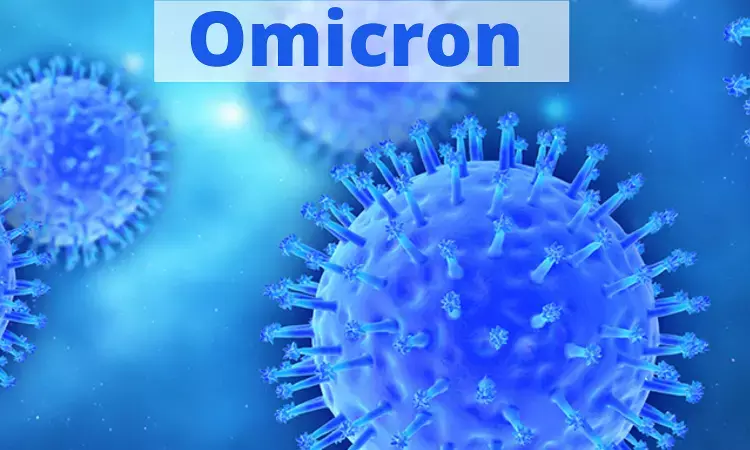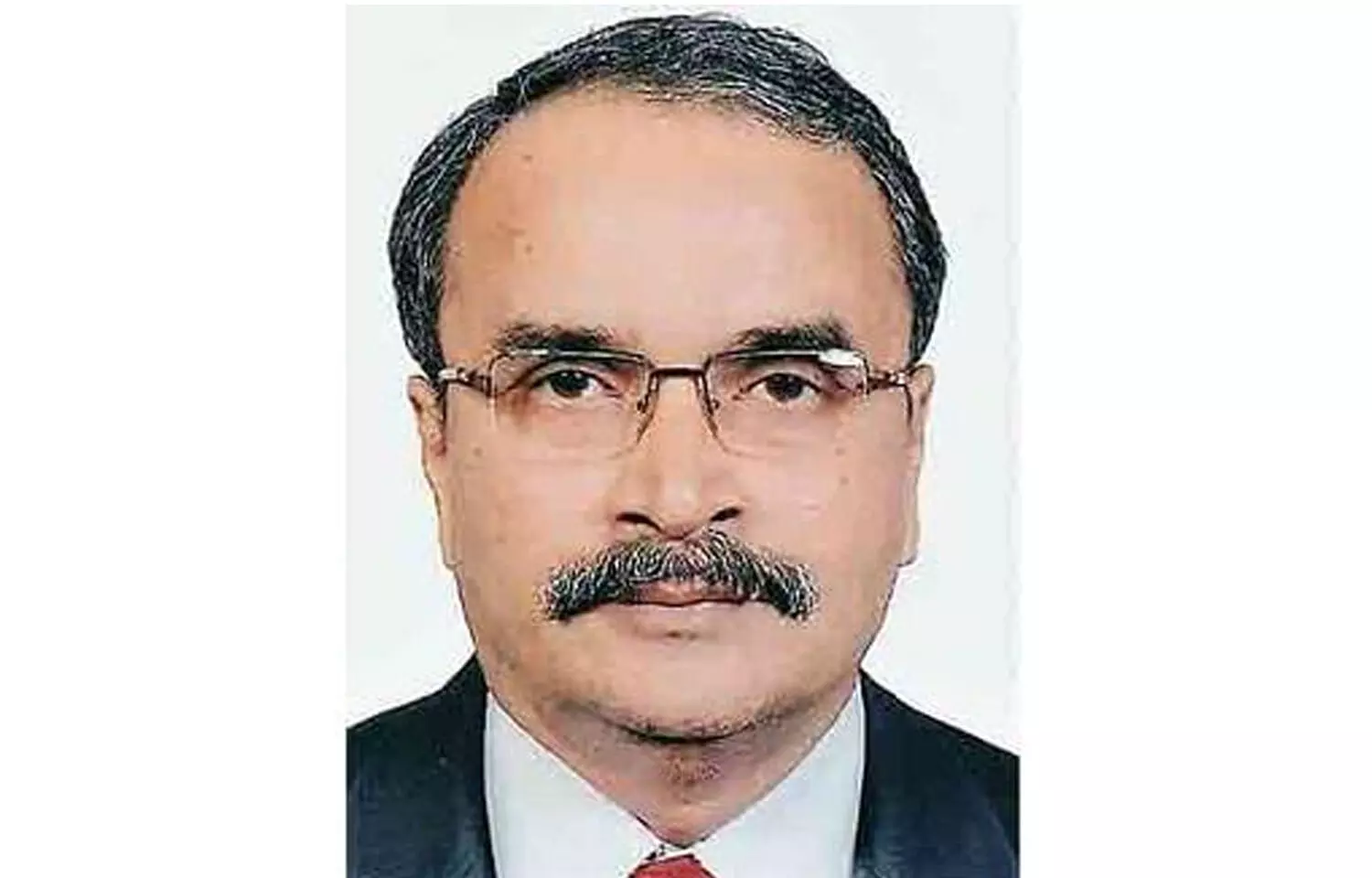- Home
- Medical news & Guidelines
- Anesthesiology
- Cardiology and CTVS
- Critical Care
- Dentistry
- Dermatology
- Diabetes and Endocrinology
- ENT
- Gastroenterology
- Medicine
- Nephrology
- Neurology
- Obstretics-Gynaecology
- Oncology
- Ophthalmology
- Orthopaedics
- Pediatrics-Neonatology
- Psychiatry
- Pulmonology
- Radiology
- Surgery
- Urology
- Laboratory Medicine
- Diet
- Nursing
- Paramedical
- Physiotherapy
- Health news
- Fact Check
- Bone Health Fact Check
- Brain Health Fact Check
- Cancer Related Fact Check
- Child Care Fact Check
- Dental and oral health fact check
- Diabetes and metabolic health fact check
- Diet and Nutrition Fact Check
- Eye and ENT Care Fact Check
- Fitness fact check
- Gut health fact check
- Heart health fact check
- Kidney health fact check
- Medical education fact check
- Men's health fact check
- Respiratory fact check
- Skin and hair care fact check
- Vaccine and Immunization fact check
- Women's health fact check
- AYUSH
- State News
- Andaman and Nicobar Islands
- Andhra Pradesh
- Arunachal Pradesh
- Assam
- Bihar
- Chandigarh
- Chattisgarh
- Dadra and Nagar Haveli
- Daman and Diu
- Delhi
- Goa
- Gujarat
- Haryana
- Himachal Pradesh
- Jammu & Kashmir
- Jharkhand
- Karnataka
- Kerala
- Ladakh
- Lakshadweep
- Madhya Pradesh
- Maharashtra
- Manipur
- Meghalaya
- Mizoram
- Nagaland
- Odisha
- Puducherry
- Punjab
- Rajasthan
- Sikkim
- Tamil Nadu
- Telangana
- Tripura
- Uttar Pradesh
- Uttrakhand
- West Bengal
- Medical Education
- Industry
Healthcare professionals, researchers vouch for evidence-based response in handling COVID

Delhi: As a way of handling the Covid-19 pandemic in 2022 in an efficient and more effective way, almost 33 healthcare professionals and medical researchers all over the country have penned an 'open appeal' to the Central and state governments seeking to adopt evidence-based response to avoid mistakes of the second wave.
In an open Appeal to All-State and Central Ministries of Health, to the Indian Medical Association (IMA), and All Medical Professionals, experts pointed out that the response to the pandemic, while marked by innumerable examples of personal sacrifice and grit, was riddled with missteps – several of which were avoidable. While there continues to be much uncertainty amidst the outbreak of this novel disease, there is now substantive high-quality scientific literature that provides unequivocal guidance on the clinical management of COVID-19.
"Despite the weight of this evidence and the crushing death toll of the delta wave, we find the mistakes of the 2021 response being repeated in 2022", they added.
The letter highlighted unwarranted medications, unwarranted tests, and unnecessary hospitalizations during COVID. They mentioned, " The vast majority of patients with COVID-19, with asymptomatic and mild symptoms, will require little to no medications. Most prescriptions we have reviewed in the past two weeks include several COVID-19 "kits" and cocktails. Outbreaks of opportunistic fungal infections like mucormycosis in India and aspergillosis in Brazil were attributed to the widespread abuse of inappropriate medications."
It was further stated in the letter, " The vast majority of COVID-19 patients will need no additional diagnostics after the initial positive rapid antigen or PCR test, except – in some cases – home monitoring of their oxygen level. Yet, CT scans and a battery of laboratory tests like d-dimer and IL-6 are routinely being prescribed by practitioners across the country in asymptomatic and mild cases, placing undue financial burden on families. " Moreover, unnecessary hospitalizations, besides further adding to the financial load, also risk the lives of hundreds of thousands of other, non-COVID patients that cannot find a hospital bed for more emergent conditions.
While pointing out the problems, these healthcare experts have also proposed five measures, from updating the home-care protocol to revising the June 2021 guidelines of the directorate general of health services to handle the COVID pandemic. The association has requested the Central and State governments to institute the following policies immediately, with regard to the COVID-19 medical response in India:
1. Update the evidence-based June 2021 DGHS guidelines. In particular, provide specific guidance on the use of monoclonal antibodies, given their limited efficacy for the Omicron variant, and their continued widespread use.
2. Through public education and professional training, discourage the use of medications that have no supporting evidence for the treatment of COVID-19, including alternative therapies, potions, antibiotics, "cocktails," and drugs like Molnupiravir, which are expected to be widely abused and inappropriately prescribed.
3. Through public education and professional training, discourage the use of unwarranted diagnostics, especially for asymptomatic and mild cases, where none are required, except for confirmatory Antigen or PCR tests.
5. Stop any state-sponsored promotion or distribution of medications, cocktails, alternative therapies or potions that are not scientifically proven therapies.
" We underscore the importance of ramping up proven effective public health strategies, including universal masking in all public places. Provide communities the resources to do so through mass media campaigns and the regular distribution of appropriate three-ply masks. Provide all healthcare workers adequate N95s and eye protection. Continue to accelerate vaccination, building on current success", added the letter.
The experts further assured that they stand ready to provide any assistance asked with preparing any of the above material. " We very much hope that you implement these policies with the urgency they merit", they added.
The healthcare professionals who suggested evidence-based response include:
1. Dr Anant Bhan, Yenepoya (deemed to be) University, Mangaluru
2. Dr Rajani Bhat, Pulmonologist, boardofdoctors.com , Bangalore
3. Dr Anjali Chhabria, MindTemple, Mumbai
4. Dr Sonia Dalal, Dalal Sleep and Chest Medical Institute, Vadodara
5. Dr Bharat Gopal, Sr Chest Physician, New Delhi
6. Dr Richa Gupta, Christian Medical College, Vellore
7. Dr Raghuraj Hegde, Manipal Hospitals, Bangalore
8. Dr Rajeev Jayadevan, Sunrise Hospital, Kakanad, Kerala
9. Dr Yogesh Jain, Sangwari, Chhattisgarh
10. Dr Yogesh Kalkonde, Sangwari, Chhattisgarh
11. Dr Arvind Kumar, Medanta – the Medicity, Gurugram
12. Dr Charuta Mandke, Dr. R. N. Cooper Municipal General Hospital
13. Dr R K Mani, Yashoda Super Specialty hospital, Ghaziabad UP
14. Dr Pavitra Mohan, Basic Healthcare Services, Rajasthan
15. Dr Nachiket Mor, Banyan Academy of Leadership in Mental Health
16. Dr Sanjay Nagral, Jaslok Hospital, Mumbai
17. Dr Cyriac Abby Philips, The Liver Institute, Rajagiri Hospital, Kerala
18. Dr Ashish Satav, Mahatma Gandhi Tribal Hospital, Amravati
19. Dr Tushar Shah, Advanced Multispecialty Hospital, Mumbai
20. Dr Satendra Singh, University College of Medical Sciences, Delhi
21. Dr Aqsa Shaikh, Hamdard Institute of Medical Sciences and Research, New Delhi
22. Dr Zarir Udwadia, PD Hinduja National Hospital; Breach Candy Hospital
23. Dr Sonali Vaid, Public Health , Incluve Labs
24. Dr Shitij Arora, Albert Einstein College of Medicine, US
25. Dr Satchit Balsari, Harvard Medical School, US
26. Dr Kartik Cherabuddi, University of Florida Health, US
27. Dr Sumanth Gandra, Washington University School of Medicine, US
28. Dr Manoj Jain, Emory University, Rollins School of Public Health, Atlanta, US
29. Dr Manoj Mohanan, Duke University, US
30. Dr Madhukar Pai, McGill University, Canada
31. Dr Priya Sampathkumar, Mayo Clinic, US
32. Dr Bhavna Seth, Johns Hopkins School of Medicine, US
33. Dr Amita Sudhir, University of Virginia, US
Sanchari Chattopadhyay has pursued her M.A in English and Culture Studies from the University of Burdwan, West Bengal. She likes observing cultural specificities and exploring new places.
Next Story



